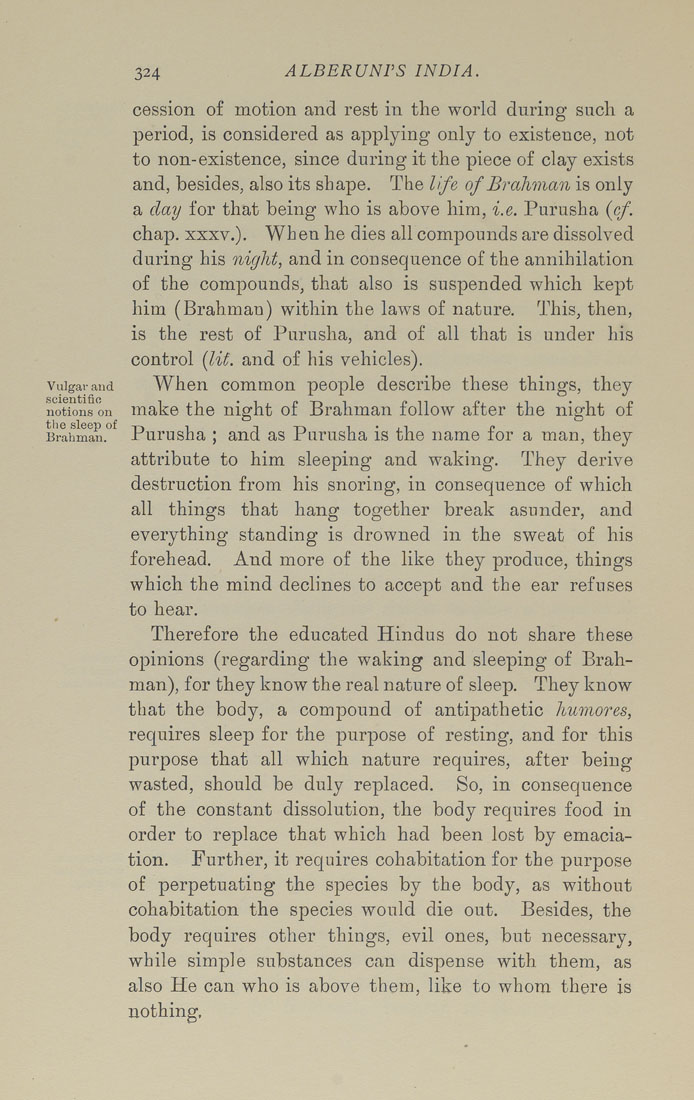Bīrūnī, Muḥammad ibn Aḥmad, Alberuni's India (v. 1)
(London : Kegan Paul, Trench, Trübner & Co., 1910.)
|
||
|
|
|
|
| Page 324 |

324 ALBERUNPS INDIA. Vulgar and scientific notions on the sleep of Brahman. cession of motion and rest iu the world during such a period, is considered as applying only to existence, not to non-existence, since during it the piece of clay exists and, besides, also its shape. The life of Brahman is only a clay for that being who is above him, i.e. Purusha (cf. chap. XXXV.). When he dies all compounds are dissolved during his night, and in consequence of the annihilation of the compounds, that also is suspended which kept him (Brahman) within the laws of nature. This, then, is the rest of Purusha, and of all that is under his control (lit. and of his vehicles). When common people describe these things, they make the night of Brahman follow after the night of Purusha ; and as Purusha is the name for a man, they attribute to him sleeping and waking. They derive destruction from his snoring, in consequence of which all things that hang together break asunder, and everything standing is drowned in the sweat of his forehead. And more of the like they produce, things which the mind declines to accept and the ear refuses to hear. Therefore the educated Hindus do not share these opinions (regarding the waking and sleeping of Brah¬ man), for they know the real nature of sleep. They know that the body, a compound of antipathetic humores, requires sleep for the purpose of resting, and for this purpose that all which nature requires, after being wasted, should be duly replaced. So, in consequence of the constant dissolution, the body requires food in order to replace that which had been lost by emacia¬ tion. Further, it requires cohabitation for the purpose of perpetuating the species by the body, as without cohabitation the species would die out. Besides, the body requires other things, evil ones, but necessary, while simple substances can dispense with them, as also He can who is above them, like to whom there is nothing. |
| Page 324 |







